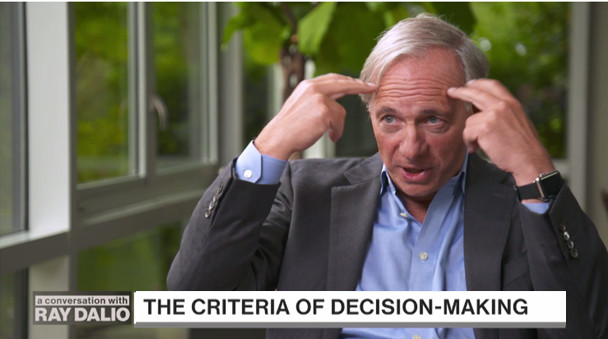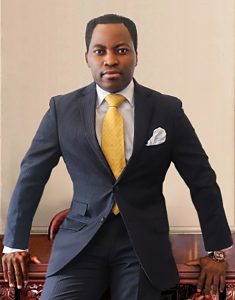Originally published on LinkedIn November 1, 2017
Some might say Amazon is the forest and most corporations are just stand- alone trees, paying taxes for photosynthesis and oxygenation of borrowed life.
We know Queen Daenery’s fire breathing dragons are not chasing corporations, neither are the White Walkers nor legions of soldiers armed with Valyrian steel swords; so, what is killing these corporations? The silent killer is the inevitable change of business models and practices, which creep up on incumbents. The genesis of this article dates back to the 21st of September 2017, when I read a LinkedIn comment reminding us that Toy”R”Us will file for bankruptcy. Given its brand equity and perceived number one position, its unfortunate vicissitude could happen to any global brand. Hence, being adept at business operations but inept at corporate disruption, is tantamount to withering away like a summer flower in the fall season. As the Lannisters, Baratheons, Targaryens and all the other families from GoT often wished, but never ruled for a 1,000 years, some of the global brands we adore today may not survive to see the next 10. I have a deep appreciation and respect for what global business leaders do. Please note, in this context, the word inept is not used negatively, in any way, shape or form.
Businesses have been fighting for the corporate throne for decades, jostling for global supremacy under the guise of growth. There’s nothing wrong with that, it’s a binary situation; in life, we are either growing or dying. Since most people remember their warm-and-fuzzy feeling of going to Toy”R”Us as kids, or with their children; it was painful to read because it was a sentimental Toy Story. One that broke us inside and shattered dreams of playing Princesses or Princes for a day. As more startups integrate AI, Machine Learning, Bitcoin or Blockchain, there will be more brand causalities. The GoT phrase “Winter is Coming,” will unfortunately freeze more firms out of business.
Unfortunately for C-level executives of the world’s biggest companies, doing the job they were hired for just got harder. They now have to manage the company for today, and also for what it will become tomorrow. They have to ensure the corporation remains relevant, and does not fold-up during their tenure. This extends to fighting external threats like corporate espionage and systems infiltration popularly known as a corporate hack, which could lead to a CEO losing their job e.g., Equifax. If we go back in time to 1948, the year Toy”R”US launched, it too put several Mom & Pop shops, as well as midsize stores out of business. In today’s fast pace business world, retaining dominance seems to be mimicking the survival tactics of the animal kingdom; it’s eat or be eaten, run fastest, fly highest or die. Since we’re talking about Toys”R”Us, if you think the above analogy is too harsh, perhaps the musical chairs version might work. The past proves no company is infallible. We saw what happened to Blackberry phones not RIM, Nokia and others. Even startups that started not too long ago are now billion dollar behemoths. They are conceptualizing new models which eat the breakfast, lunch and sometimes dinner of incumbents. Examples below.
- Uber and DiDi changed the Taxi game globally.
- Although it cannot take over, Airbnb is disrupting the Hotel business globally.
3. Payments changed by PayPal, Square, Bitcoin, Apple and Samsung Pay.
Blaming The 800 Ton Dragons
According to the excerpt in italics, Amazon is to blame. Here in the West, everyone is blaming Amazon, in the East they are blaming Alibaba. Both companies are just growing fat and healthy as they should. Unfortunately, their German engineered strategies are hurting others, and putting thousands out of work. If we think it’s bad now, wait and see what will happen in the next 5 to 10 years. If new business models or mergers do not take away jobs, automation will. What’s really causing the downfall of these businesses? I believe it’s a combination of the Internet, e- Commerce, Logistics, Smartphones, Digital Transformation, Customer Experience & Convenience, Economies of Scale and Economies of Scope. I’m sure there are others, feel free to add.
The beginning of the end started when Toys”R”Us contracted its fulfillment to Amazon. In hindsight we can’t and shouldn’t call it myopic vision. It was cost efficient, it wasn’t their core business and Amazon had perfected the operations of helping companies, so why not. However, that was like putting the fox in a hen house, leaving it there for a week and expecting to show up to collect eggs from the chickens.
Amazon and Alibaba are unique in the sense that they are run by their original founders. Remember how Steve brought Apple back from the brink of bankruptcy, when they brought him back as a consultant or adviser. No corporation or industry is immune from disruption. However, in the rare case that you’re a too big too fail company. You may still take an unrecoverable hit by a government mandated breakup, e.g., Standard Oil which was broken into 34 companies or AT&T broken up to Baby Bells. Guarding against not being the next victim; in my humble opinion, all big firms must bring in fresh meat, filled with fresh blood or people who see things differently.
Who Will Sit on The Corporate Throne and Control The 7 Continents?
The long term winners, or to be more precise, the companies that will be around in 20 years, are those that are ready to spread their tentacles deep and wide across continents and industries. Lack of change will ultimately lead to an inevitable demise.
How Not be The Next Victim of Disruption
I took note of this impressive quote from Ray Dalio, he owns the biggest Hedge Fund in the world. His firm Bridgewater Associates manages $150 billion of AUM. “If you’re not worried, you need to worry; and if you’re worried, you don’t need to worry.” Listen from 32:50 Sec I chose Dalio not because of his performance and wealth, rather, because of the focus and will power to come back from loosing it all in 1982.

- Hire a Chief Idea Officer (CIO) who is also the Corporate Strategist. The most important factor; she or he will be a (Gen-Xer) between 30 to 45 years old. Their job description encompasses how do we get bigger, enter new businesses, not just markets, how do we beat our competitors? Give us big and bold ideas. Tell us who may disrupt us, should we buy or build? What are the emerging tech trends? What are the ramifications of doing A instead of B. Tell us how you see things taking shape over the next 10 years. The CIO’s job is to conceptualize, develop and refine corporate ideas for reinvention, growth and longevity. The important ingredients of the modern CIO are; creativity, a technology & strategy lover, an analytical mind with EQ, an original thinker, curiosity, knowing a little or a healthy amount about a lot of things, predisposed to unconventional thought processes and seeing things differently. Someone with international exposure; lived/worked abroad is desirable. Ability to add to the top-line significantly, as a result of ideas. Preferably she or he played, or still engages in some sort of competitive sports and was a top performer.
- Redefine your mission statement in order to crystallize the corporate vision. Create Ad campaigns and a narrative around it. This does two things; internally, it provides guidance and focus, externally it helps define you. I cannot over emphasize the importance of this activity. From my research over the years; I’ve noticed that a high proportion of companies that closed shop thought they were in a different business.
- Kodak was a camera company in the business of ephemerality or capturing great moments. However it thought it was in the business of producing hardware.
- Blockbuster was an entertainment company, which thought it was just a video rental service. Whilst the world was changing, it thought it would rule the space forever and Netflix took over. It could have done several things to diversify, we can discuss.
- Yahoo was a victim of its success. It was one of the first internet companies. They didn’t transition from 1990s interface as others did. They didn’t narrow their focus to be known for something, or a few great things. You cannot be all things to all people on one website. You could argue today’s companies are doing exactly that. It’s different when Disney, Google or Apple do it, they brand the products separately. One thing Yahoo did well was the $1 billion for 40% stake in Alibaba which generated $7 billion; more than Yahoo’s entire sale to Verizon for $4.8 B in 2016.
3. Besides the CEO’s CMO’s and CFO’s everyday tasks, they have to be paranoid about the guys in the garage. Case in point; Google, Apple and others, they came out from the shed as the new kids on the block, and eventually bought the whole block. C-Suite have to see and know what’s around the corner that may affect or destroy them. In 2017 and beyond, thinking outside the box is too small. The dominance and longevity bars are much higher; hence, if the entire mechanics of a firm are not checked, in order for it to run with the fluidity of a Swiss Watch + the precision of Japanese formation, it might be next. Corporate checkup includes endogenous & exogenous threats.
4. Conceptualize quantum leap strategies, and work on a 15-25 year plan, not Q1 to Q4.
5. Strategy & Steering Committee have to be more active in vision and navigation.
6. Invest in firms which may be parallel with merged value not necessarily synergistic.
7. Let’s discuss more….
An example of thinking outside the box, could be iKea’s purchase of TaskRabbit, at first people may ask why? TaskRabbit does not pose an immediate or foreseeable threat. If the entire enterprise value of buying TaskRabbit was relatively low, then it makes economic sense because there are several ways of buying a company without paying cash. If TaskRabbit’s growth trajectory is higher than Ikea, which I’m sure it is, without looking at the figures. How did I arrive at that conclusion? (It’s a tech company scaling with a high replicability factor globally). The deal makes sense because future profits goes on Ikea’s consolidated income statement. Even if Ikea’s business stalls, TaskRabbit could still generate revenue and value. The same way Alibaba did for Yahoo.
“People who lose their relevance get stuck in the past because they’re no longer in the present moment.” Marc Benioff, Founder of Salesforce.



